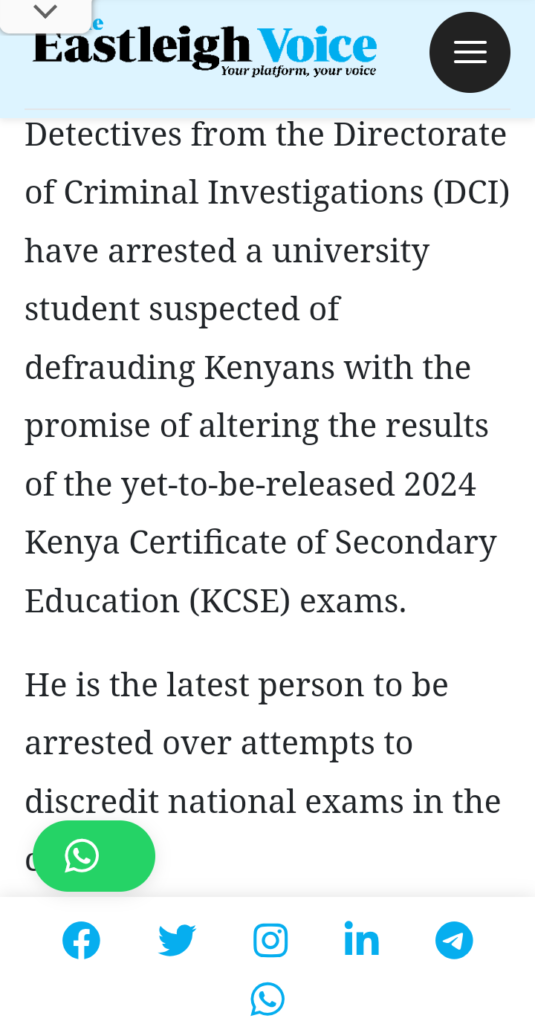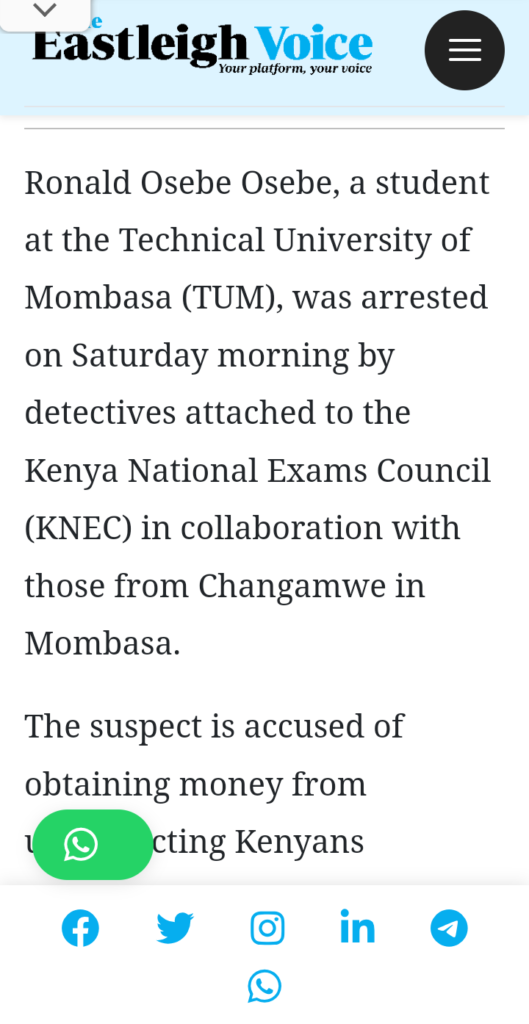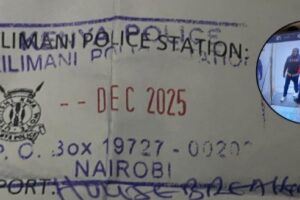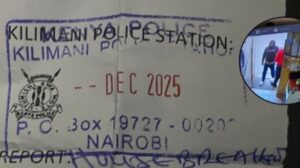Detectives from the Directorate of Criminal Investigations (DCI) recently apprehended Ronald Osebe Osebe, a student at the Technical University of Mombasa (TUM), accused of orchestrating a fraudulent scheme targeting Kenyans eager to manipulate the 2024 Kenya Certificate of Secondary Education (KCSE) results.
His arrest exposes the shocking vulnerabilities within the education system and highlights how exploitation thrives in moments of societal pressure, such as national exams.
Osebe allegedly operated a deceitful network promising to alter KCSE results, including scores from previous years, for financial gain. Using the guise of a fake identity, “Nancy Baya,” he preyed on unsuspecting parents and students desperate for better outcomes.

Through a WhatsApp group of over 300 members, he marketed his fabricated services, falsely claiming access to ongoing KCSE marking and guaranteeing grade improvements.
Messages in the group, such as “In case you need to improve your scores through editing, hit my inbox,” reveal the calculated manipulation that lured victims into his trap.
The fraudulent scheme is not only concerning but raises critical questions about how such operations can occur repeatedly, discrediting national exams.
Despite previous arrests of individuals attempting similar scams, the education system and law enforcement appear unprepared to completely eradicate such threats.
The lack of stringent safeguards around sensitive processes like exam marking and result dissemination provides fertile ground for fraudsters like Osebe to thrive.
The suspect’s arrest in Changamwe, Mombasa, followed collaborative efforts between detectives from the Kenya National Examinations Council (KNEC) and local DCI officers.
He now faces multiple charges under the Computer Misuse and Cyber Crime Act, 2018, as well as charges of obtaining money by false pretenses.
Authorities are currently investigating his financial transactions to determine the extent of the scam, seeking records from his M-Pesa and bank accounts.

However, the fact that he managed to operate such a scam undetected for so long is an indictment of the system’s failure to monitor potential fraudsters.
This incident reflects poorly on the integrity of Kenya’s national exams.
It also exposes the desperation of some parents and students willing to risk engaging in illegal activities to secure better results.
Instead of addressing underlying issues like exam pressure and access to quality education, the system inadvertently pushes individuals toward shortcuts that undermine the credibility of national exams.
Such fraud tarnishes Kenya’s academic reputation and raises concerns about the efficacy of KNEC in safeguarding the process.





















Add Comment